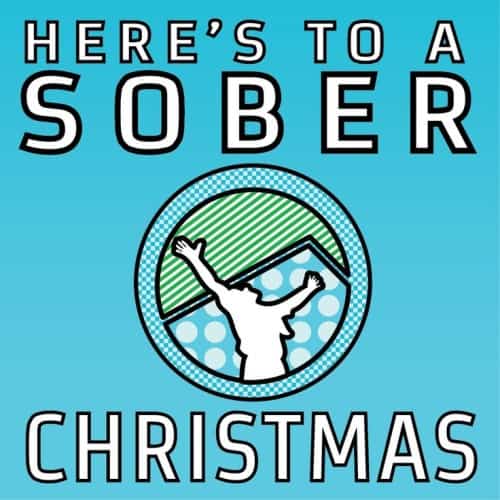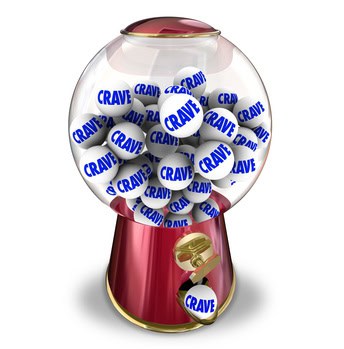
043: 63 Ways to Stay Sober Over the Holidays
Podcast: Play in new window | Download
Subscribe to the Recovery Elevator Podcast Apple Podcasts | RSS | More
In this Episode Shannon, who is a high bottom drunk explains how she made it to nearly 80 days sober. She mentions she loves Karaoke and you can check out Jimmy Cliff’s “I Can See Clearly Now” on YouTube because that’s how we both feel these days!
While listening to the Bubble Hour Podcast a few weeks ago on my drive home for Thanksgiving, I heard some great ideas on how to stay sober over the Holidays. One of the segments was how to respond when someone offers you a drink at a Holiday party. I heard from great responses, but none of the answers were the truth. What I have learned in recovery, is the best answer is the truth. The truth is liberating and you will be surprised by the lack of questions you will get after telling someone you don’t drink. Most people are happy for you, and encourage your decision to not drink. A small percentage will give you flack, and this is a great way to quickly find out who are not your friends. Another small group will become inquisitive and start asking questions like, how much did you used to drink? Or, why are you not drinking? These people are asking for themselves because they have been questioning their own drinking habit.
But here are 77 additional tips on how to stay sober over the Holidays. I do not claim for this to be a full and comprehensive list, and with certainty, I can predict leaving out some very important ones. But here ya go.
63 ways to stay sober over the Holidays
- Hang out with another alcoholic: That guy Bill was on to something there.
- Dedicate 5 minutes today, 10 minutes tomorrow, 15 minutes the next day and increase by five minutes each day on a dormant hobby that you used to love so much. This could be the guitar, model trains, knitting, or swimming. Endless possibility of fun things to do.
- Find conduits to your higher power: Forest, Snow, Trans Siberian Orchestra in a Starbucks coffee shop, painting and so much more.
- Music: Listen to music. Have you heard flamenco? It’s incredible.
- Write a letter to a friend. Not an email, but place a stamp on an envelope and send it out.
- Write down 5 things you are thankful for each day. My first sponsor requested this of me, and after 16 days, I had 8 things listed in my gratitude list. Not because I wasn’t thankful for things in life, but because sometimes these small, seemingly infinitesimal tasks were very had.
- Have a sit down chat with your addiction: Hey Gary, as you know the Holidays are approaching…
- Call a family member that isn’t immediate family and tell them how much you appreciate them. This could be a cousin, uncle, etc.
- When in a drive through (preferably not fast food), pay for the person behind you.
- Cartwheels: 94% of cartwheels result in laughter and a great time. The other 6% are broken coffee tables.
- Go to a 12-step meeting.
- Buy paint, a canvas, and start painting
- Go on a 3-mile walk/hike where there is no cell service. Or make it a point to leave your phone at home.
- Write down the goal of not drinking over the holidays. And then place this goal in a place you will see everyday like on your bathroom mirror or inside your gym locker (if you work out everyday).
- Volunteer your time at the animal shelter and walk some dogs. In Montana, you may even be able to walk a pig or goat. Dogs are service animals for a reason. Their company is therapeutic and they also don’t judge. You’re simply the “bees knees” since your taking them on a walk.
- Affirmation: Remind yourself daily that you will not be drinking because you have an allergy to alcohol.
- Read a book. More specifically, “A Drinking Story” by Caroline Knapp
- When someone asks if you want a drink at his or her Christmas Party, you respond with “is your snowmobile insured”?
- Stay a minimum of 300 feet away from Burger King, McDonalds, Arby’s Wendy’s and other fast food chains at all times. Actually the chili at Wendy’s is okay. But that’s it!
- Pray
- Say the serenity prayer out loud while looking into the mirror.
- Learn the serenity prayer in a different language.
- Make it a point to get outside of your comfort zone.
- Be okay with uncomfortable feelings. Take 10 minutes and feel your uncomfortable feelings. Embrace them.
- Get REal with yourself.
- Hot tea. Hot Tea Hot Tea. Tea that is not injected full of caffeine if possible.
- Listen to recovery podcasts.
- Read: Read and be a sponge.
- Go through your cabinets and remove anything with over 10grams of sugar on the carton. Also look for bags of sugar, powdered sugar, and stashes of Reece’s pieces.
- Cook brussel sprouts
- When someone asks if you would like a drink at his or her holiday party, tell them you don’t drink.
- When that person asks why you don’t drink, answer their question unequivocally.
- Ask siri to set the timer to 5 minutes. For the first minute, while in a calm still place, sit down, keep your eyes and just focus on sounds. Minute two, breath in for 5 seconds, and exhale for five seconds. Minutes three, close eyes and tell yourself what you are thankful for. Minute four, pump yourself up with affirmations like Paul Churchill, today we will something great and minute five, envision what you want your life to be like in 1 week, 1 month, 1 year, 5 years and 10 years.
- Write down your goals. 95% of people don’t write down their goals and 95% of or people, who write down their goals, achieve their goals. Think that one through.
- Wake up before the sun comes up fro five consecutive days.
- Put your alarm clock on the other side of the room so you physically have to get out of the bed.
- Write down who your recovery team is. This doesn’t matter if you are drunk now, or have 10 years of sobriety. Be clear with who is on your team in case of emergency. Have the baby bag packed by the door.
- Avoid self-loathing: in other words, don’t kick the crap out of yourself over your drinking. Alcohol does a fine job of this already.
- Get to know your addiction. My addiction is named Gary, and I fully respect him.
- Whoever or what ever that God thing is, just remember, you’re not it.
- Find a way to create accountability. Tell someone you are planning to quit drinking, or this Christmas you plan to have less than ten eggnogs.
- Don’t judge yourself. Be truly accepting of who you are.
- Call your sponsor and if you don’t have one, get one.
- Acceptance is the answer. My favorite paragraph in the Big Book. Find a way to accept your current situation.
- Get creative: Create something with clay, pick up a new instrument, use your mind to create something.
- Learn a new skill or task. You tube is a great way to learn new things.
- Remove temptations: There are the obvious ones like that bottle of Tequila in your pantry, but get rid of all the maple syrup in the house while you’re at it.
- Have an exit strategy at outings.
- Give up control.
- Hang out with that group of friends who implausibly seem to be enjoying themselves without alcohol.
- De-friend 5 negative or non-supportive friends on Facebook.
- Write goals down: Don’t drink today, build a fence, or write a book.
- Celebrate: Milestones are huge.
- Get back up on your feet.
- Reward yourself with a treat: The treat shouldn’t be booze or consist of more than 92% sugar.
- Stay busy.
- Remind yourself the last 256 times you planned to only have a couple beers tonight, didn’t end up as planned.
- Netflix, HBO, and Hulu
- Learn a new recipe. One that doesn’t need maple syrup to make it delicious.
- Check out some animals in their natural environment.
- Go Carts.
- Do the steps.
- Remind yourself, it was my brilliant ideas that got me into this predicament (if you’re in a predicament) so maybe I don’t have all the answers.
This is huge Recovery Elevator. The first Recovery Elevator meetup will be taking place in Seattle on Saturday February 27th, 2016. Details to come. Email info@recoveryelevator.com for more info on this meetup.
This podcast was brought to you by Sober Nation.



